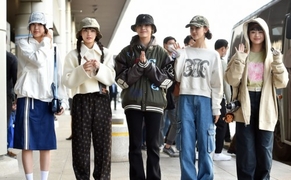 |
| Park Wan-joo, chief policymaker of the ruling Democratic Party, speaks during a policy consultation meeting with the government at the National Assembly on Dec. 20, 2021./ Source: National Assembly’s Joint Press Corps |
AsiaToday reporter Jeong Geum-min
The ruling Democratic Party (DP) and government are reviewing a plan to effectively freeze the property tax next year, but many from in and outside the political circles criticize that the plan is only a “temporary measure.” This is because it would not change the government’s current calculation plan of assessed property prices, the main reason for the tax burden, as well as the real estate policy. The property holding tax will eventually increase if the next year’s higher assessed prices are used.
“To ease tax burdens for those who own one house, we decided to put buffers for each system, such as property tax, comprehensive real estate tax, and national health insurance,” said DP chief policymaker Park Wan-joo in a press briefing Tuesday after a policy consultation meeting with the government at the National Assembly. “The ruling party and the government will take all possible measures against the increase for those who own just one house.”
“Applying this year’s official property price in calculating property holding tax for next year is one option,” Park said, adding the move would effectively freeze property holding tax.
Regarding a comprehensive real estate holding tax, Park said the party asked the government to review a temporary postponement in payment of the tax for seniors who own one house. The party also asked the government to review adjusting the fair market value rate. The fair market value rate refers to the tax rate multiplied by the official price in the process of calculating the amount of tax that taxpayers are required to pay. Usually, it serves as a tax base for the imposition of property tax and comprehensive real estate holding tax.
However, such measure has come under criticism that it is a temporary policy aimed at appeasing the public sentiment. In fact, the ruling party and the government are planning to carry out its original plan to gradually raise state-evaluated prices for all types of real estate to up to 90 percent as planned.
“The government is having a game with the public. It is ridiculous to see the government pretending to take care of the people now, although it had a chance to take preventive measures in advance,” said Heo Eun-ah, the spokesperson of the main opposition People Power Party (PPP).
“The average state-evaluated real estate price has risen by 19 percentage points this year, bombarding the public with higher property taxes,” Heo said. “The government has hurriedly come up with such measure to settle the public sentiment, which is shocking.”
#property tax #DP #burden
Copyright by Asiatoday
Most Read
-
1
-
2
-
3
-
4
-
5
-
6
-
7





















